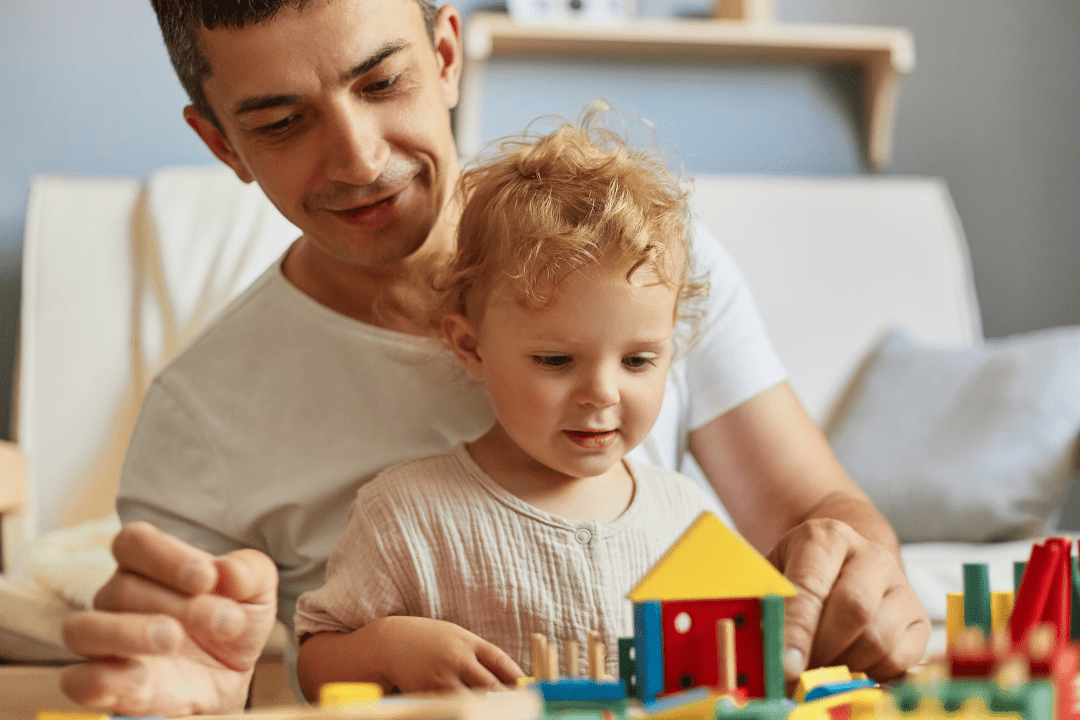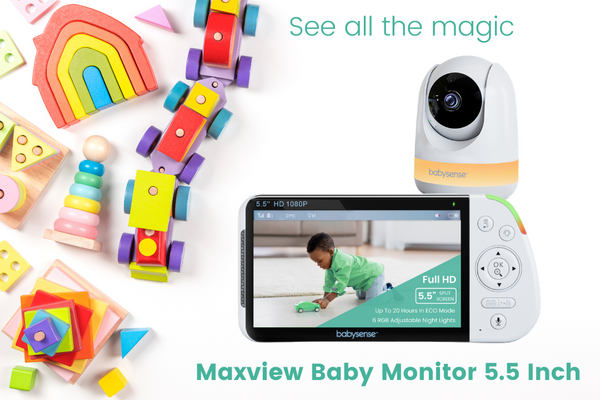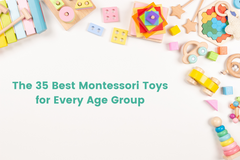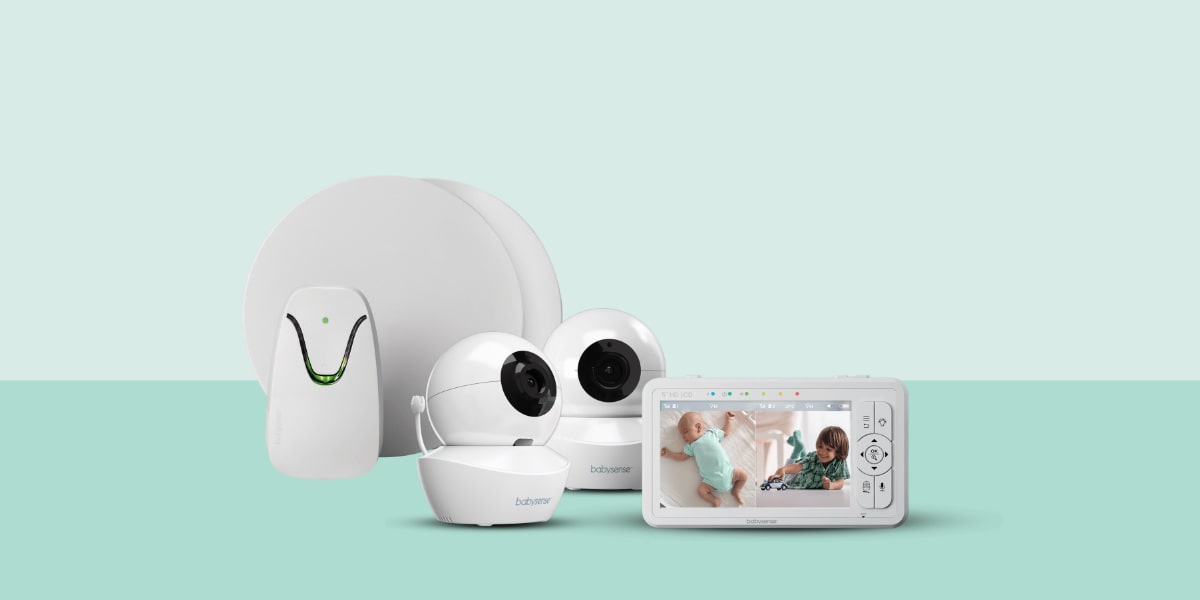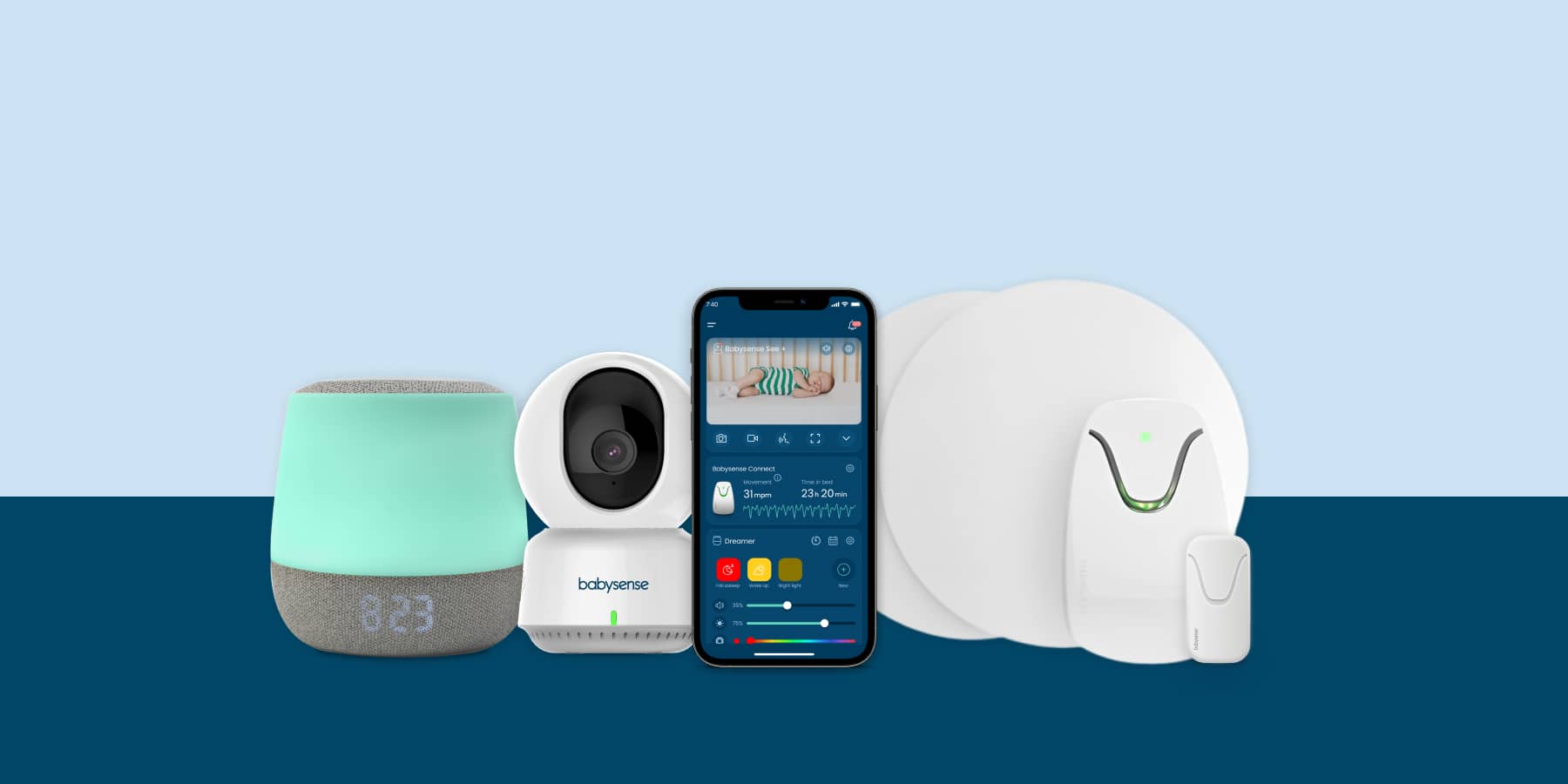Montessori Made Simple: Fostering Curiosity and Independence in Your Child
In the ever-evolving journey of parenting, finding methods that not only educate but also foster independence in our children is a golden key. Montessori parenting stands out as a beacon of light, offering a philosophy deeply rooted in respect, freedom within limits, and understanding the natural psychological development of children.This guide aims to take you through the essence of Montessori at home, providing practical tips and insights into creating a nurturing environment that unlocks the immense potential within your little ones.
Let’s dive into a world where learning is as natural as breathing, and watch our children flourish beyond the blocks.
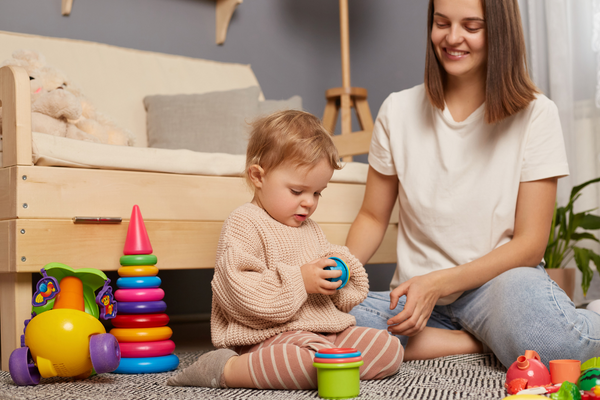
Montessori 101: What's It All About?
Dive into the world of Montessori parenting, where your living room turns into a laboratory and every day is an adventure in learning. Developed by Dr. Maria Montessori, this philosophy isn’t your average classroom lesson plan. It’s all about putting the kiddos in the driver's seat of their education—think of it as a road trip where they pick the destinations.
Montessori is like the cool aunt or uncle of educational philosophies, believing that kids learn best when they’re calling the shots, within reason of course. They get hands-on with everything, making discoveries through play, and you’re there to guide, not dictate.
This approach focuses on developing the whole child—mind, body, and soul—preparing them for the real world with skills that go beyond the three R's (reading, writing, and arithmetic). It’s about fostering independence, curiosity, and respect in an environment where the toys are educational, and mistakes are high-fives in disguise.
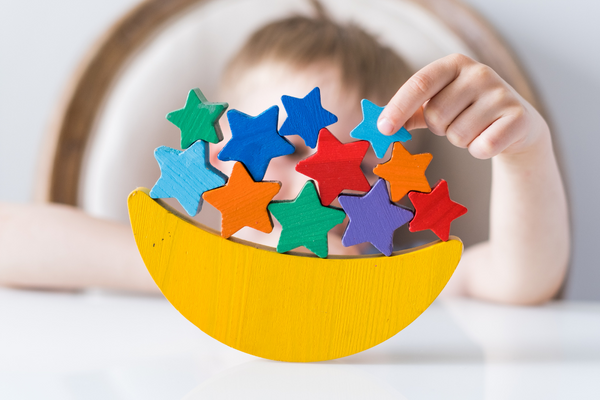
So, if you’re ready to turn your home into a haven of exploration and growth, Montessori might just be the ticket you’re looking for. Let's gear up for a journey where learning is as fun as a game of tag—educational, engaging, and always exciting.
Montessori Tips for a More Peaceful Home
Transforming your home into a Montessori paradise isn’t about turning it into a classroom clone, but rather creating a vibe that screams, "Peaceful vibes only!" Start by kicking clutter to the curb.
A tidy space isn’t just easy on the eyes; it’s like a fast pass to focused and calm kiddos. Think of your home as a canvas for creativity and learning. Keep those toys and materials where your mini-me’s can easily grab them – independence is the name of the game, and nothing says "I got this" like reaching for their own stuff.
Next up, let’s chat furniture. Child-sized furniture isn’t just adorable; it’s empowering. It’s like rolling out a red carpet that says, "Welcome to your space, where you can do it all by yourself!" But the real secret sauce to a serene home? Patience and respect. Show your littles that making mistakes is all part of the learning adventure.
By modeling these golden behaviors, you’re not just preaching; you’re practicing what makes a Montessori home a peaceful haven for growth and discovery. So, let’s dial down the chaos and turn up the calm with these Montessori tips for a more peaceful home.
Empowering Little Learners: The Montessori Magic for Early Development
In the enchanting realm of Montessori, every toy, every activity, and every moment is a stepping stone to greatness. Empowering our tiny tots to dive into the sea of learning with gusto, Montessori transforms the mundane into the extraordinary.
Imagine your little one, a mini explorer, navigating through daily tasks with the skill of a seasoned adventurer. From learning to tie their shoes to mastering the art of pouring their own drink, these aren't just tasks; they're triumphs in the making.
Montessori magic sprinkles a little bit of fairy dust on the early development journey, making it less about instruction and more about discovery. Picture this: your living room, a treasure trove of opportunities where sorting colors isn't just play—it's a masterclass in decision making.
This isn't just about keeping the kiddos busy; it's about lighting the spark of curiosity that fuels a lifetime love affair with learning.
But here’s the real scoop: Montessori isn't about handing them the world on a silver platter; it's about equipping them with the map and compass to navigate it on their own terms.
By fostering independence and a can-do attitude, Montessori turns little learners into confident, capable beings ready to conquer their world, one discovery at a time.
Weighing the Scales: Montessori Parenting Pros and Cons
Stepping into the Montessori world is like upgrading to a deluxe edition of parenting - it’s exciting, enriching, but let’s be real, it comes with its own set of challenges.
On the bright side, Montessori parenting turns your little one into a mini maestro of their universe. They learn to dress themselves quicker than you can say “independence,” and their problem-solving skills are off the charts.
It’s a hands-on approach that encourages children to explore, make decisions, and learn from their adventures (and misadventures). They don’t just grow; they thrive, developing a love for learning that’s as natural as scrolling through TikTok.
However, it’s not all smooth sailing on the SS Montessori. This approach demands a hefty investment of time and patience from you, the captain of the ship. Setting up a Montessori-friendly home isn’t a one-and-done deal; it’s an ongoing voyage of discovery (and yes, sometimes, cleanup).
And let’s talk treasure—those beautifully crafted Montessori materials and toys aren’t exactly pirate booty; they can make your wallet feel a tad light.
But here’s the kicker: when you weigh the scales, the treasure trove of benefits often outweighs the cons. Watching your child navigate their world with confidence and curiosity? Priceless.
So, if you’re up for an adventure, Montessori parenting might just be your map to buried treasure.
Age-by-Age Guide to Montessori Toys
Navigating the world of Montessori toys doesn't have to be like finding your way through an ancient, mysterious maze. Here's your trusty map to discovering the perfect playthings for your tiny adventurers, categorized neatly by age, because let's face it, not all heroes wear capes—some just have really cool toys.
-
For the littlest learners, those adorable bundles of joy (a.k.a babies), focus on toys that grab their attention and don't let go—except when they do, because, well, gravity. Think high-contrast mobiles that dance above their cribs or soft rattles that encourage them to grasp and explore. These are the baby steps to sensory enlightenment.
- Toddlers stepping into their terrific ones are ready for a bit more of a challenge. It's time to introduce toys that require a pinch more coordination. Stacking blocks, easy puzzles, and anything they can push or pull without redecorating your walls are fantastic choices. These toys are like the sidekicks helping your little ones develop motor skills without even realizing it.
- Marching into the terrific twos, your child is now a mini explorer, ready to conquer the world, one shape sorter at a time. Offer them toys that spark creativity and problem-solving—think simple construction sets, art supplies for messy masterpieces, and pretend play items that turn your living room into a stage for their imagination. These toys aren't just playthings; they're the tools for tomorrow's innovators.
So, there you have it, your age-by-age guide to Montessori toys that promises fun, learning, and maybe just a little bit of magic.
No capes required, just a curious mind and the freedom to explore.
Early Brain Development and Montessori: What's the Connection?
Imagine your brain as a super cool, high-speed computer that's getting set up during the first few years of life. Now, think of Montessori activities as the ultimate software updates that help this computer run smoother, faster, and more efficiently.
The connection between early brain development and Montessori is like peanut butter and jelly—totally meant to be. Montessori isn't just about giving kids stuff to play with; it's about providing them with the right tools at the right time to spark those neural fireworks.
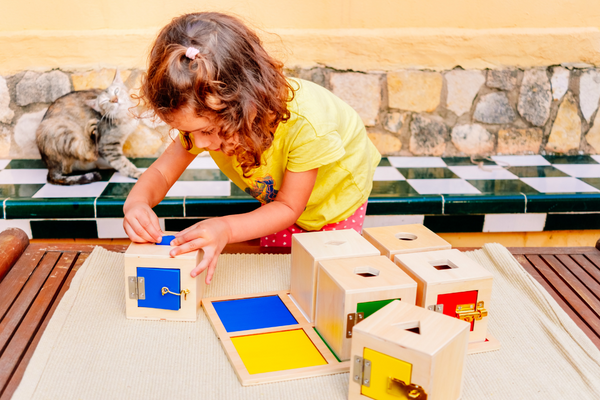
Research is like a detective that's been snooping around and found out some pretty neat stuff. It tells us that kids who dive into the sensory-rich world of Montessori get a turbo boost in developing their cognitive functions, language skills, and even their ability to play well with others.
That's because Montessori aligns perfectly with the way our brains like to grow—through hands-on experiences that make learning as natural as scrolling through social media.
So, when we talk about the connection between early brain development and Montessori, we're looking at a match made in heaven.
Montessori doesn't just fill the brain with facts; it builds the pathways that help kids think creatively, solve problems, and manage their emotions.
It's like equipping your brain with the coolest gadgets to help it reach its full potential. Now, who wouldn't want that for their brain's development journey?
Nurturing Parenthood with Purpose
Embarking on the Montessori journey at home isn't just about setting up a few wooden toys and calling it a day. It’s about nurturing a spirit of exploration and curiosity in your child while walking beside them as their biggest cheerleader.
Nurturing parenthood with purpose in the Montessori world means rolling up your sleeves and getting down to their level—literally and figuratively. It's about creating a home environment where mistakes aren't just okay; they're celebrated as stepping stones to greatness.
Imagine you’re the wise guide in an epic adventure, where your child is the hero ready to conquer challenges. Your role? To provide the tools (cue the cool Montessori toys), the map (hello, peaceful and structured routines), and the encouragement (high-fives and hugs are a must) for their journey.
This purpose-driven approach to parenting is about more than just the outcomes; it’s about fostering a love for learning, a knack for independence, and a bond that’s built on mutual respect and understanding.
Music for the Montessori Child
Let's hit play on the soundtrack of Montessori living, where music is more than just background noise—it's a vibrant, hands-on part of the learning experience. Introducing music to your Montessori munchkin is like giving them a backstage pass to the world of harmony, rhythm, and melody.
It's not just about cranking up the volume on their favorite tunes; it’s about encouraging them to shake, rattle, and roll with their very own instruments. Picture your living room turning into a mini-concert hall, where every performance deserves a standing ovation, even if it’s just from the stuffed animals on the couch.
Encourage your child to explore different sounds, whether it’s banging on a drum, tinkling on a xylophone, or strumming a ukulele. This isn’t just noise; it’s their first step toward musical genius (or at least, a whole lot of fun). Dive into dance parties where you both groove to the beat, showing them that music is something you can feel from the tips of your toes to the top of your head.
Music in Montessori isn't just about creating mini-Mozarts; it’s about tuning into the emotional and expressive side of your child. So, let the music play and watch as they march to the beat of their own drum—literally. Who knows? You might just have a rock star in the making.
Routines That Work: Balancing Freedom and Structure
In the world of Montessori, it's not just about letting your kids run wild with freedom—there's a method to the madness.
Think of routines as the secret sauce to a perfectly balanced dish. They're not about putting your day on repeat but creating a rhythm that your kids can groove to.
Imagine your daily routine as a dance floor. In one corner, you have Freedom busting some freestyle moves, and in the other, Structure doing the robot. Now, the magic happens when you get them dancing together. That’s what we're aiming for—a routine that feels more like a dance-off and less like a march.
Start your day with a morning jam that gets everyone pumped—maybe a little toothbrushing boogie followed by a breakfast samba. Then, sprinkle in some learning activities with plenty of room for improvisation. Don't forget a cleanup conga line and a bedtime waltz to wind down the day.
The key? Keep it consistent but flexible. If your child wants to twirl instead of tango, that's cool. The aim is to guide them gently back to the rhythm. By finding the sweet spot between freedom and structure, you're teaching your kids to cha-cha through life with confidence and grace. So, lace up those dancing shoes, and let’s get grooving!
Screen Time: Finding the Right Balance

Let's talk about the elephant in the room—screen time. It's like the junk food of the digital world; a little might be okay, but too much and things start to get a bit... wobbly. In the Montessori household, we're all about keeping it real—real interactions, real play, and yes, really cutting back on the screen time. But let's be real, screens are everywhere, and sometimes, they're lifesavers (hello, long car rides and waiting rooms).
How do we find that sweet spot? First off, think of screen time as a spice—not the main dish. It's there to enhance, not dominate.
Choose content that's more broccoli than candy—stuff that feeds the brain, like educational apps or videos that spark curiosity and complement those Montessori vibes.
Remember, it's not about setting a timer and calling it a day. It's about being present. Maybe watch together and chat about what you're seeing. It turns a solitary screen stare into an interactive experience. And hey, setting a good example goes a long way. Show them there's a time to scroll and a time to stroll.
Beyond the Blocks
Montessori parenting empowers your child to explore their world with curiosity and independence. From mastering daily tasks to fostering a love of learning, Montessori celebrates the joy of discovery in every step. Get ready to watch your child blossom with confidence and a thirst for knowledge – all through the wonder of play!

